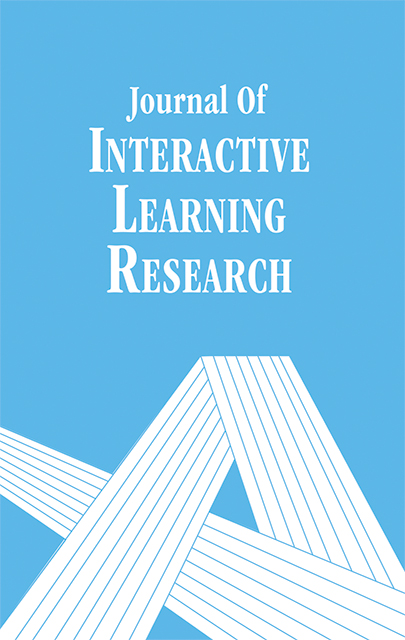
The Utility of Using Immersive Virtual Environments for the Assessment of Science Inquiry Learning
ARTICLE
 Jillianne Code, University of Victoria, Canada
; Jody Clarke-Midura, Harvard University, United States
; Nick Zap, Simon Fraser University, Canada
; Chris Dede, Harvard University, United States
Jillianne Code, University of Victoria, Canada
; Jody Clarke-Midura, Harvard University, United States
; Nick Zap, Simon Fraser University, Canada
; Chris Dede, Harvard University, United States
Journal of Interactive Learning Research Volume 24, Number 4, ISSN 1093-023X Publisher: Association for the Advancement of Computing in Education (AACE), Waynesville, NC
Abstract
Determining the effectiveness of any educational technology depends upon teachers’ and learners’ perception of the functional utility of that tool for teaching, learning, and assessment. The Virtual Performance project at Harvard University is developing and studying the feasibility of using immersive technology to develop performance assessments of middle school students’ scientific inquiry. This article reports the findings of a series of two studies conducted with US middle school students and their perceptions of the use of immersive virtual environments during assessment. We also present validation data for a newly constructed self-report instrument, the Meaningful Assessment of Learning Questionnaire specifically for Immersive Virtual Environments (MALQ-IVE).
Citation
Code, J., Clarke-Midura, J., Zap, N. & Dede, C. (2013). The Utility of Using Immersive Virtual Environments for the Assessment of Science Inquiry Learning. Journal of Interactive Learning Research, 24(4), 371-396. Waynesville, NC: Association for the Advancement of Computing in Education (AACE). Retrieved September 1, 2024 from https://www.learntechlib.org/primary/p/41534/.
© 2013 Association for the Advancement of Computing in Education (AACE)
Cited By
View References & Citations Map-
Forget about traditional ways of teaching: creativity is in your heart
Janaina Minelli Oliveira, Universitat Rovira i Virgili, Spain; Eliana Gallardo Echenique, Universidad Peruana Cayetano Heredia, Peru; Mar Camacho & E dwa r d A . L o c k h a r t, Universitat Rovira i Virgili, Spain; Francesc Esteve, Universitat Jaume I, Spain
EdMedia + Innovate Learning 2018 (Jun 25, 2018) pp. 1424–1434
-
Assessment in Immersive Virtual Environments: Cases for Learning, of Learning, and as Learning
Jillianne Code, University of British Columbia, Canada; Nick Zap, University of Victoria, Canada
Journal of Interactive Learning Research Vol. 28, No. 3 (July 2017) pp. 235–248
These links are based on references which have been extracted automatically and may have some errors. If you see a mistake, please contact info@learntechlib.org.
